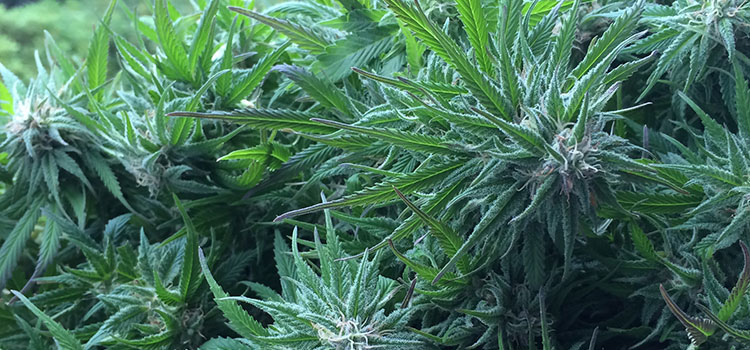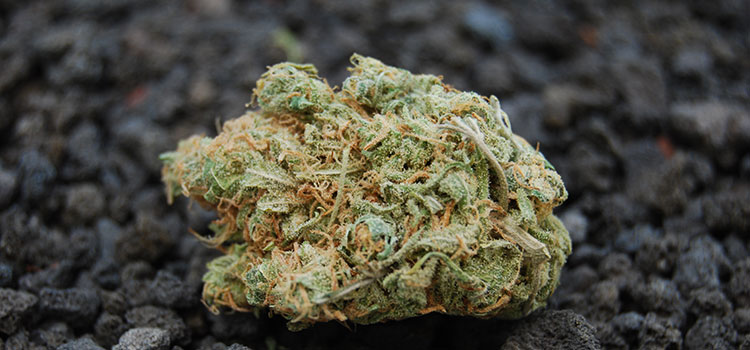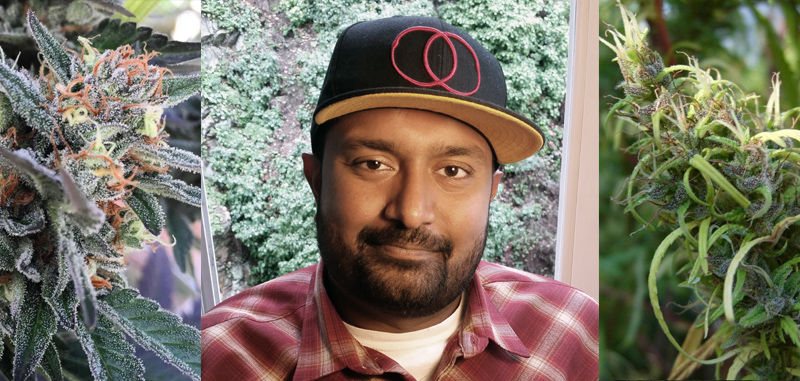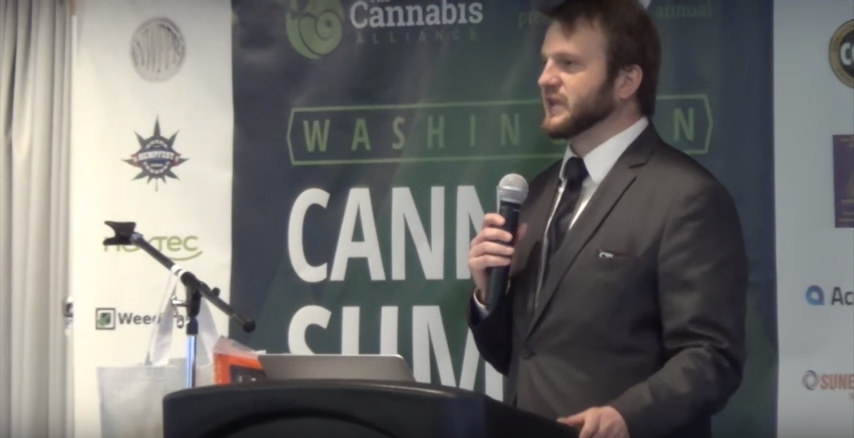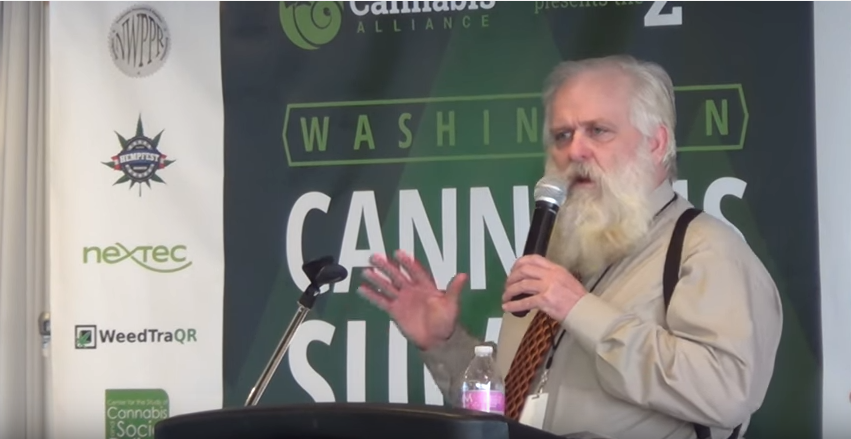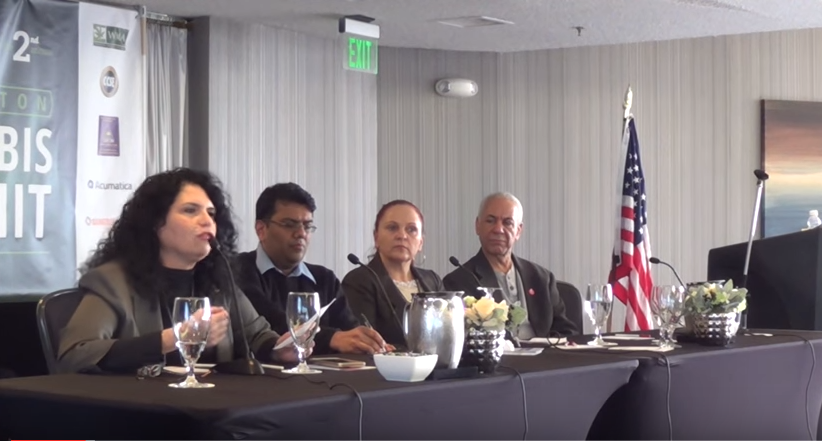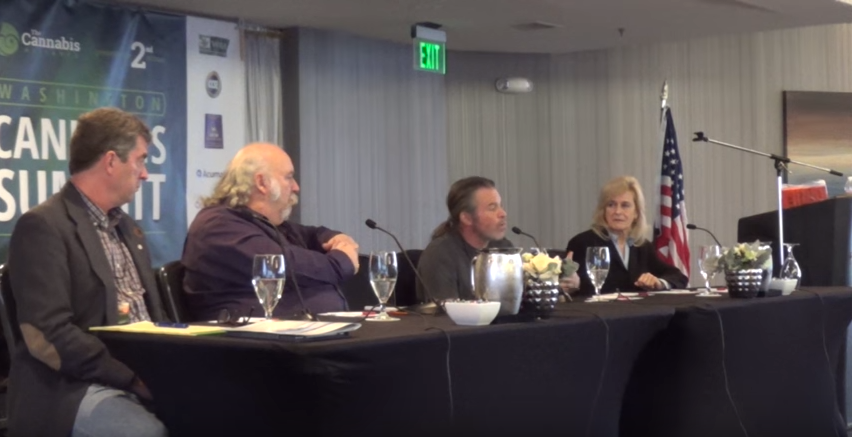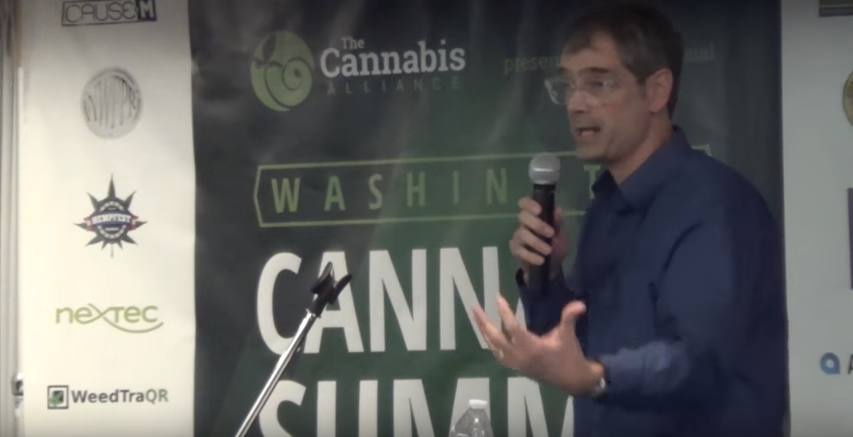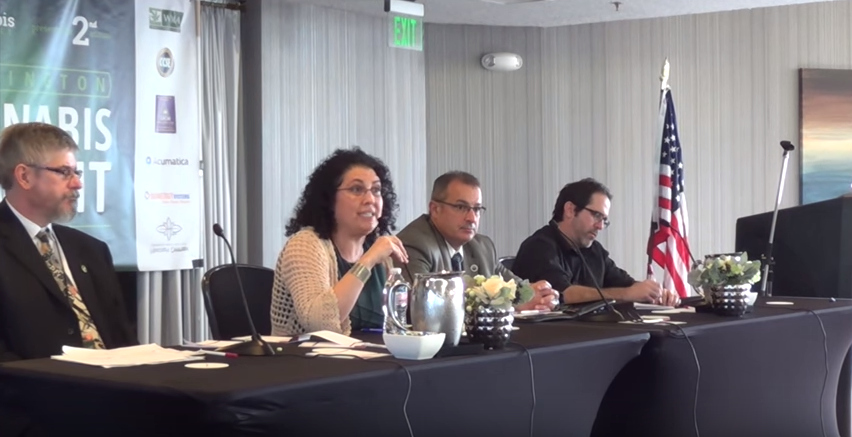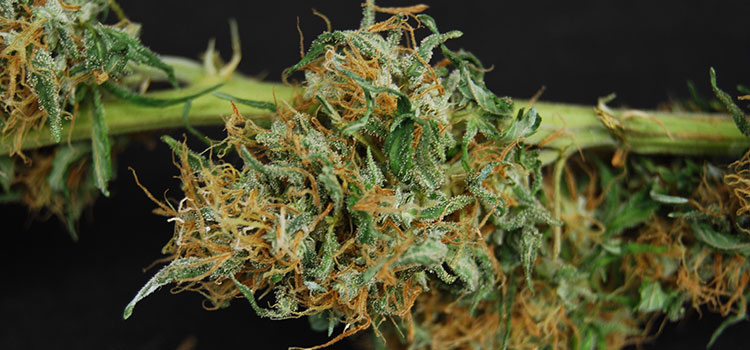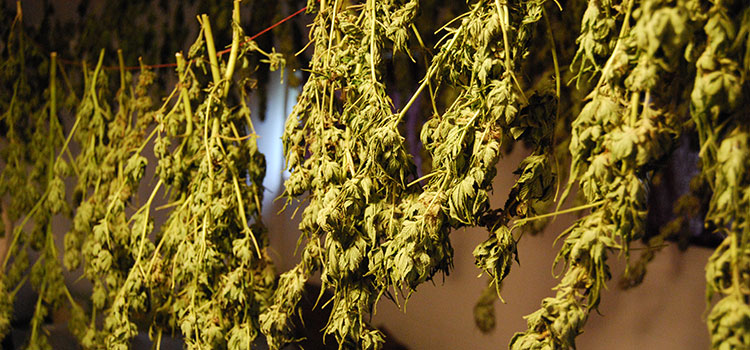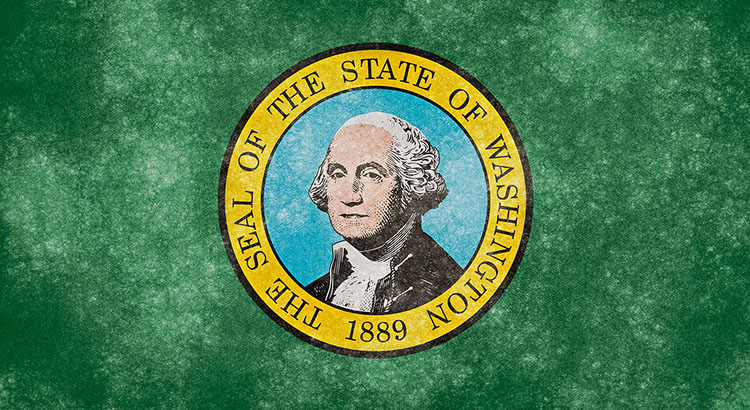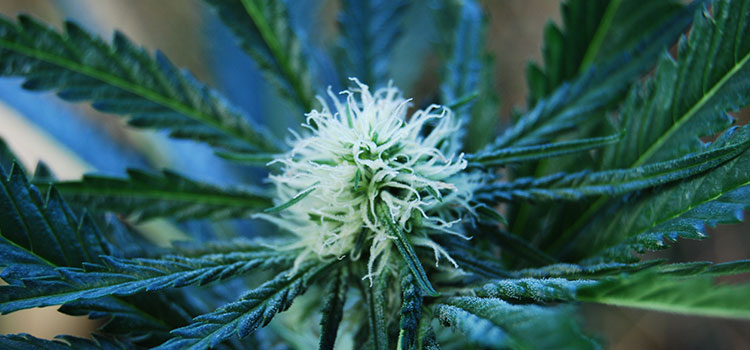Bamboo is the co-founder of Coastal Seed Company, where he is a landrace and heirloom cannabis preservationist. He is currently working to breed a stabilized, high-CBD Afghani landrace varietal called The Last Laugh, boasting a 39 to 1 CBD to THC ratio. He is also the head of extraction research at The Highest Grade Consulting, where he conducts lab research into CO2 extraction with a focus on natural terpene preservation. Bamboo recently joined our host Shango Los for a discussion of his research, how he acquires landrace seeds from around the planet, and his recent trip to the Emerald Cup.
Listen to the podcast below, or scroll down for the full transcript!
Subscribe to the Ganjapreneur podcast on iTunes, Stitcher, SoundCloud or Google Play.
Listen to the podcast:
Read the transcript:
Shango Los: Hi there, and welcome to The Ganjapreneur.com Podcast. I am your host, Shango Los. The Ganjapreneur.com Podcast gives us an opportunity to speak directly to entrepreneurs, cannabis growers, product developers, and cannabis medicine researchers, all focused on making the most of cannabis normalization. As your host, I do my best to bring you original cannabis industry ideas that will ignite your own entrepreneurial spark and give you actionable information to improve your business strategy and improve your health and the health of cannabis patients everywhere.
Today my guest is Bamboo. Bamboo is Co-Founder of Coastal Seed Company, where he is a landrace and heirloom cannabis preservationist. The focus of his current breeding is to stabilize a high-CBD Afghani landrace varietal called The Last Laugh that boasts a 39 to 1 CBD to THC ratio. He also is head of extraction research at The Highest Grade Consulting where he conducts lab research into CO2 extraction with a focus on natural terpene preservation. Thanks for being on the show, Bamboo.
Bamboo: Thank you so much for having me. I’m thrilled to be here.
Shango Los: Bamboo, a lot of the folks who are listening to the show probably aspire to a role like you are in. Where do you acquire these landraces? Do you Indiana Jones it, traveling the world, or do you have ways that you get them in other ways? How do you get your hands on these very rare seeds?
Bamboo: There are a number of ways that we get our hands on seeds. There’s no one formula that fits everything. We leverage our network of friends that we’ve known for years and personal connections, as well as do a little bit of the wild backpacking adventure hunting.
Shango Los: I would think that your network is very important with something so rare, that you’ll have other folks who are traveling to parts of the world that you may not have been to and will bring you back seeds, and then when you travel you may be trading as well. Between you and your network you’re covering the globe.
Bamboo: Yes. I was born into a little bit of a position of privilege in that regard. My father was a diplomat, and he spent most of his life traveling the globe. During his travels, he was in positions where he was able to meet people of major influence, and so we were granted access to parts of countries that most people would never be allowed to go to. I took full advantage of that in my collecting of seeds and leveraging his network of friends who were all over the globe.
My partner, Kagyu, who’s my older mentor, he’s been breeding in the hills of Santa Cruz since the mid ’60s. His network of friends were involved in the hash trade, so they preserved seeds that they found in different batches of cannabis that they were receiving back then. Between leveraging a very useful network of friends and getting out in the field, those are the two primary ways that we acquire landrace, though I have to say that it’s becoming increasingly difficult to find pure landrace just backpacking, and without the right contacts it becomes almost impossible.
A lot of the varieties that are out there have also been diluted. I’m sure people have seen different clips on YouTube of people traveling the world doing strain hunting, and after they’re finished finding great strains they wind up leaving worked lines with those people. All it takes is pollen from a worked line being introduced to a landrace varietal to ravage and damage that population.
Shango Los: That actually reminds me a lot of one of the rules in Star Trek, that you do not influence other populations on certain planets. In a similar way, it seems like it would be more honorable to not leave genetics behind in some of these indigenous lands so that the local seeds stay clean landraces, but I bet you those folks totally want to trade for modern First World hybrid genetics. Are we running into a lot of issues yet where the locations that were traditionally growing landrace varietals are now being bulldozed and turned into suburbs for a lot of these cities now?
Bamboo: The commodification of the product has led to that outcome. I think recently I was talking to somebody from Armenia. They were involved in the cannabis industry there. I was asking them to procure me some landrace varieties, and he was of the opinion that there was nothing left …
Shango Los: Jeez.
Bamboo: … that most of the commercial cultivators that were operating were focused strictly on the bottom line, which is profit. That’s one of the issues with landrace varietals. If you don’t have a stabilized variety, you don’t know what you’re going to get, and some of them might produce very undesirable traits from a marketing perspective. She was of the opinion that they didn’t exist. She said that most of what they were growing were Dutch genetics that had been brought in. A lot of people had been converted over to auto-flowers. Even if you were to go to some remote portions where a lot of the cannabis is grown due to the illicit nature, these guerrilla grows are contaminating the wild local population.
I almost advocate for a Hawaiian perspective on … That’s one thing that I hope that out of legalization and normalization will come, is some sort of attention to those details. If you look at what’s going on in Oregon right now, they’ve already started to take these kind of thoughts into consideration. The hemp program in Oregon’s been put on hold from complaints of cannabis farmers not wanting their cannabis contaminated with pollen from hemp varieties. These are issues that we need to tackle.
From my perspective with The Last Laugh variety that I’m working on, this is where I have been an outspoken opponent of feminized seeds, but I think that my position has changed a lot with regards to that. I think there’s a place for feminized seeds on the market in the sense that hemp could be done feminized in a manner that would allow hemp cultivation to take place next to cannabis.
Shango Los: I follow you, so that you’d use the feminized seeds on the hemp side so that they’re not cross-pollinating into the medical cannabis side.
Bamboo: Yes, and also combining that with different diagnostic tools that they have at the lab so that as you’re making feminized seeds you’re able to analyze the genetics to make sure that you’re not passing on a high percentage of hermies. One of the great things about normalization is the access to new tools that breeders such as myself have. For the majority of the last 50 years, cannabis breeding has been an underground hobby taken on by the few in the shadows, and so most of our experience is field breeding in conventional breeding methods. One of the beautiful things about normalization is that now we are given access to laboratories and analytical tools that conventional farmers have had access to for years.
While I’m not an advocate of GMO practices, I do believe that, using molecular diagnostics, we can really get a look into what we are doing before we actually do it, and that can be very helpful.
Shango Los: I want to get into a little more detail about the help that technology has given, but we need to take our first break. We’re going to take that short break and be right back. You are listening to The Ganjapreneur.com Podcast.
Welcome back. You are listening to The Ganjapreneur.com Podcast. I am your host, Shango Los, and our guest this week is Bamboo, Co-Founder of Coastal Seed Company. Bamboo, you and I first met a few weeks ago at The Emerald Cup, where you were educating folks about preservation of seeds and doing a little seed sales yourself. That was quite an incredible group of seed breeders there, wasn’t it?
Bamboo: Indeed. I was absolutely thrilled to be on the stage with so many OGs that I’ve looked up to over the years and surrounded by so much talent and so much love. The Emerald Cup is my favorite time of the year. It’s such an amazing gathering of the minds and the movers and the shakers. The feedback that we get from the community is really what keeps us going. It’s always great to meet the people that are running your seeds and hearing the feedback.
For me, that’s really part of our research, is I always encourage people who use our seeds to bring us pictures, bring us samples. The more that we can see of what comes out of these landrace crosses, the more we can understand about what treasures they hold.
Shango Los: Everybody was so pumped up and excited because it’s so rare to be able to talk face-to-face with some of your heroes. Even some of the scientists I was having lunch with, the rock stars had their rock stars. The heroes’ heroes were there. A lot of these breeders and scientists who have known about each other for 10, 20 years but have never met, they all had this opportunity to get together and meet for the first time.
Before the break we were just starting to talk about how technology is helping you do what you do now. I know that you’re working both yourself in the lab and you’re also working in conjunction with Steep Hill. Flesh that out for us a little bit. What’s the advantages of having a lab available to you now versus strictly working in the Northern California hills like you’ve had to do historically?
Bamboo: One of the great aspects of having access to these analytical tools is that we currently operate in a paradigm that restricts the number of plants that we can use. As breeders, it’s all about populations, running large numbers of plants so that we can find specifically what we’re looking for, and then having the space to finish those out so that we can really analyze and track all the different traits and characteristics that are there. There are so many different combinations that can come out of a hybrid, and it’s really about finding the stellar ones in the crowd.
Traditionally we’ve been limited by size and plant number, and currently we still are, depending on what state you’re in. In California, depending on the county, you’re limited by plant count or canopy space. Either way, it’s a limit. My mentor, Kagyu, used to breed for Northrup King where he would have access to acres and acres. When they would do their alfalfa breeding, they would seed large acres, up to 10 acres, and flood them and basically torch the plants, because they were breeding for flood and drought resistance, and managed to pull 1 or 2 out of a population of 10,000.
With cannabis, we haven’t have that opportunity. This is really where the analytics excel, because now, instead of having to run all my seeds in order to find my keepers, we are able to take it into the lab. They use an analysis process called High Resolution Melt test and identify certain markers that are based on data that they collect that will tell them a thing or two. Right now, Steep Hill has found the genetic marker for CBD varieties, so they can tell me approximately what the ratio is going to be based on the HRM test.
With this Last Laugh varietal, we were working with a Afghani landrace, and landrace by nature is all over the place. There’s going to be so many different types of phenos. How do you stabilize something that has so many different type of phenos when you don’t have the space to do it? Well, we’re able to take in a bunch of seed now, quickly screen for them, figure out which are the males and the females that are going to be best suited for our application, get rid of the rest, and then use the ones that we know to hold the traits that we want in our population increases so that the likelihood that the characteristic and trait appears in the next generation is faster.
Now we’re rapidly increasing the rate which we can come to conclusions, because before, the process was crack the seeds, select based on my nose, my sight, looking for branching characteristics, leaf patterns. It was all visual and conventional. Now I have to flower those plants out, and then once they’re finished flowering I have to take them into a lab to analyze them and see if they have the cannabinoids that I want and then go back and then do a seed increase. It’s shaving months off of our time. What used to be a five-year project to stabilize a seed can be effectively achieved in as little as two years now.
Shango Los: Wow. It’s like having a crystal ball in your process to know what this stuff is going to look like before you have to take it all the way to flower. We actually had Reggie Gaudino on this show from Steep Hill a couple weeks ago. We were talking about patenting strains in the future, and he dropped the bomb that to get a patent on a strain it’s got to be F9. You could almost hear everybody rolling their eyes, like, “Oh, my God, that’s going to take us so long to get.” Now, hearing about this technology, you can be able to get to F9 way quicker than traditionally possible.
Bamboo: Indeed, yeah. We get the F9, and an even more stabilized F9 because in each generation we’re just even more focused and more targeted on the molecular level. What I love about this is I’m not a proponent of GMO, but I’m not anti-science. I think that a lot of people have the opinion that if you’re against GMO that you’re not with science, and I think that’s just patently false. I think that by allowing us to preview, we’re not playing God and trying to edit the DNA code. What we’re saying is we know that this is capable of producing this. Let’s match that with something else that is capable of producing that.
I think a lot of the issues with IBLing things is loss of genetic data, and so one of the things that we always do before we delve down the path of using these amazing molecular tools is that we always do open cross-pollinations. I highly advocate that any aspiring breeders out there who are listening to this show, please take the time and effort to do open populations before you start narrowing things down, because once you start to distill, it’s very hard to bring back what you’ve taken out of the picture.
That’s great from a breeding perspective. What we want to do is we want to stabilize seeds and we want to remove certain things from the picture so that we’re painting a very specific item, but there’s a lot of value to the things that we toss, value that we might not understand yet, that we don’t have the capability to analyze. This is why we’re working with Steep Hill, is because while their capabilities are great and ever-increasing, they can’t tell us everything yet, and so the more stuff that we bring in to test and the more data that we collect as we are running our populations, we can start collecting this data and analyzing it and then increasing their analytical capabilities which in turn increases our breeding capabilities.
It’s really funny how me and Reggie first met. Me and Reggie were bumping heads because I was very fearful of the power of the data that they were holding. I didn’t quite understand how it was being used. Our very first introduction was very combative, but over time we’ve grown into an amazing friendship that has fostered continued growth on both ends.
Shango Los: Yeah. Having spoken with you both now, him coming at it from a very Western science approach and you coming at it from a pioneer, spirituality, doing it in the California hills approach, I’m sure that you both have got a lot of information for cross-pollination between the two of you.
Bamboo: Indeed, yeah. It’s been great. His perspective has informed my breeding, and I know that our breeding has informed his analytics, and I think that’s great.
Shango Los: I like the analogy you used about wanting to paint with these landraces, because truly there’s a lot of wild colors and variety in these landraces for a breeder to use. Can you just give me a couple examples of attributes that you find in landraces that can be used by a breeder in building up what would hopefully be an award-winning strain?
Bamboo: Sure. Anything that you can think of, really. I’ll give you some examples of things that I’ve seen lately. I was recently working with an Indian landrace that was gifted to me by Valerie Corral from WAMM. It’s called Shiva’s Trident, and it’s un-killable. It just won’t die. It’s resistant to cold and frost and drought. This is a plant that was left outside in December last year and was basically left to die, and we found that same plant growing after not checking on it for seven months in one of the worst droughts in Californian history, thriving. It wasn’t as beautiful as something that would’ve been hand-cared, but the fact that it survived a drought outside for over six months is a testament to its vigor and its strength.
We found that recently we left a few out in the frost. With temperatures up in these hills dropping below 30, even our potatoes died, but Shiva’s Trident didn’t die. That’s unique. We’ve had other strains out there that did die. Another example would be mold or mildew resistance. There are certain strains that pests are not attracted to. They’ll look for other plants to go bother. Yield. Stress tolerance.
I always come back to the Girl Scout Cookies example. Girl Scout Cookies is a strain that’s very popular, but it’s also known to hermie. We crossed it with the Puna Butter, which is a Hawaiian heirloom. We crossed it with three different strains, and then we did field testing to see how the stress tolerance that was imparted by each of the males. Two of the other males that we used resulted in a number of hermie issues, didn’t fix the problem that was inherent to the Girl Scout Cookies, but the Puna Butter did. We were unable to make it hermie.
It’s hard to quantify the number of desirable traits that are in landrace varieties because the potential is limitless. We’ve just barely scratched the surface of what’s there.
Shango Los: That’s a good example, too. Just like when you’re painting, your colors are eventually limitless, and the whole point of a landrace preservationist is that you want to hold these so that they are on your palette for when the day comes to breed them and you don’t want them lost over time. We need to take another short break. We’ll be right back. You are listening to The Ganjapreneur.com Podcast.
Welcome back. You are listening to The Ganjapreneur.com Podcast. I am your host, Shango Los, and our guest this week is Bamboo, Co-Founder of Coastal Seed Company. Bamboo, with normalization stretching out across the country, and, heck, the globe now, there are a lot of folks who are inspired by you and folks like you who now they want to become cannabis breeders and preservationists and they want to travel the world and try to find some of these landraces. If you … I guess you are speaking directly to the people who are listening who want to get involved in genetics. What would you say are some of the best actions that they can take to prepare themselves for a career in this?
Bamboo: I find myself right now going back to the basics. I have applied to the UC Davis Plant Breeding Academy. I have been attending workshops. For so long in this industry we have done things underground and in an unconventional manner. There’s been so much greatness that’s come out of that. I feel like we’ve benefited from not becoming a part of the GMO paradigm. We’ve benefited by not being forced into reducing our populations to six varieties like peaches, which at one point there were over 150 varieties. At the same time, there’s a lot to be had from that science.
As a conventional breeder, I really want to delve in and learn more about the molecular, genomic side of breeding, and that’s what I would advise people to do. Start educating yourself in the traditional paradigm. Get ready to mix the best of both worlds. We’re in a unique position now where, because we’ve been underground, we haven’t been ravaged by Big Ag and a lot of our seed stock is still in what I consider to be better preserved status than most varietals of fruit and vegetables.
By arming yourselves with the skills and the tools and working with people like Reggie, I think that we’re really going to start to unlock the true healing potential of this plant, which I find to be infinite. The more that I learn about the plant, the more that I’m amazed by it. Just recently we found that one of the terpenes that’s in The Last Laugh, alpha-Bisabolol, can induce apoptosis in leukemia cells. That’s just another amazing feat being produced …
Shango Los: Yeah, and that’s why these seeds need to be so jealously preserved and taken care of. The master breeders are in a pretty tight circle of explorers and collectors. As we wrap up here, why don’t you name drop some of the breeders and preservationists that have inspired you so that people who want to learn more can Google some of those names and find out what those folks have to say as well? Who inspires you?
Bamboo: Mean Gene from Aficionado Estates. Kagyu, my mentor. South Fork Seeds. Headwaters, breeding out of Nevada. Sierra Seeds, out of Nevada County too, which is not cannabis-related but I really dig the preservation work that they’re doing and I wish that there were more cannabis breeders that were working in the same light.
Shango Los: Right on. Hopefully, folks who are hearing your words are getting inspired to consider how best to keep these seeds safe and to maybe not drop as many genetics into the Third World so that the hybrid …
Bamboo: I say share.
Shango Los: Share.
Bamboo: Share your seeds. Always create open pollinations before you start working lines. Share, share, share. We need to get seed out. We need to not hoard as much. I want to give a big shout out to Mean Gene, because he read the article in Skunk Magazine where I had described a strain that I had been looking for, what my ideal type strain would be. He saw me at The Emerald Cup and he handed me some seeds that he was working on.
The reality is that none of us have the time that it takes to work the amount of information and knowledge that we possess, and so the key is to outsource and farm these projects out. There’s only so much that we can do in our lifetime, and mother nature has us beat in terms of possible combinations, so the more projects that you can get into different people’s hands and partner with people … Like when I can’t take on a project that I find interesting, I solicit it to my friends and I say, “Hey, this is an amazing project. I wish I had time to work on that, but right now my focus is on this. Would you mind taking on this project?”
I think we need a lot more collaboration in the industry and I think that because of the commodification of the product people have been guarded about letting certain things out because they’re scared that it’s going to reduce their competitive edge. I think that that’s a wrong place to start from. I think that that’s a racing for the bottom. When things go wrong and you lose things, you can never get them back. I have been guilty.
Shango Los: I think that’s a good thing to end on, is the fact that sharing and working within your community and not hoarding it is a way that we can all have more colors on our palette so that everyone can breed for human health and enjoyment of this plant. That’s all the time we have for today. Thanks for chatting with us, Bamboo. It’s been great to have you on the show.
Bamboo: Thank you so much for having me. Appreciate it.
Shango Los: You can find out more about Bamboo at his website, TheHighestGrade.com. You can find more episodes of The Ganjapreneur Podcast in the podcast section at Ganjapreneur.com. You can also find us on The Cannabis Radio website and in the Apple iTunes store. On the Ganjapreneur.com website you will find the latest cannabis news, product reviews, and cannabis jobs updated daily along with transcriptions of this podcast. You can also download the Ganjapreneur.com app in iTunes and Google Play. You can also find this show on the iHeartRadio network app, bringing Ganjapreneur to 60 million mobile devices. Do you have a company that wants to reach our national audience of cannabis enthusiasts? E-mail grow@ganjapreneur.com to find out how. Thanks to Brasco for producing our show. I’m your host, Shango Los.
